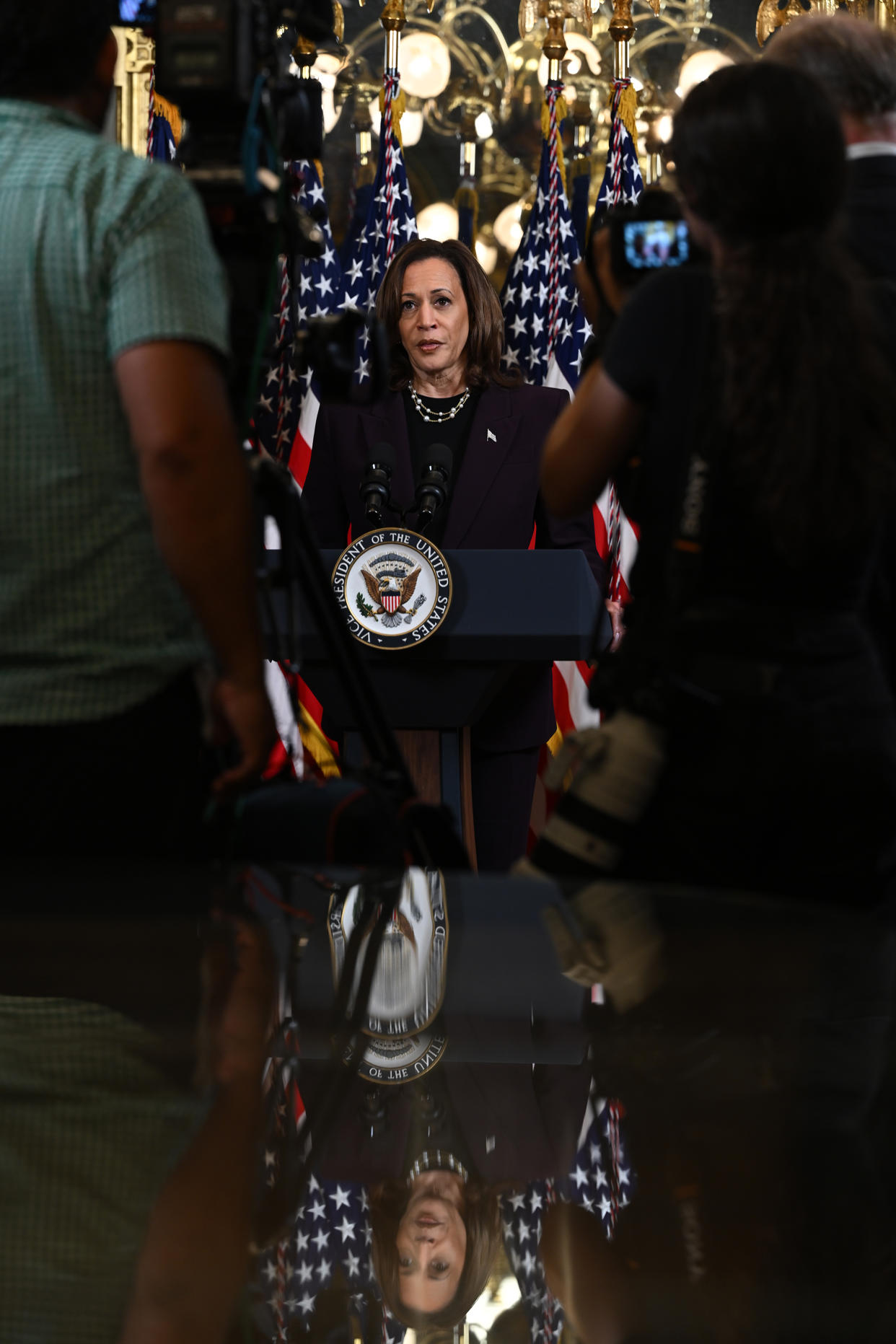Silent No More, Harris Seeks Her Own Voice Without Breaking With Biden
WASHINGTON — In a bold declaration following her recent meeting with Israel’s Prime Minister, Vice President Kamala Harris proclaimed, “I will not be silent.” This statement, while addressing the humanitarian crisis in Gaza, signifies a pivotal moment in her political journey—a quest for independence and a distinct voice within the Biden administration.
For nearly four years, Harris has occupied the role of a supportive deputy, often overshadowed by President Joe Biden's prominent public presence. However, as she emerges as the presumptive Democratic presidential nominee, the need for her to articulate her own stance has never been more pressing. The next 100 days will be crucial as she navigates the delicate balance of maintaining loyalty to Biden while establishing her own identity.
Harris's challenge is compounded by the scrutiny that accompanies her every word. Each statement will be analyzed for alignment with Biden’s policies, yet she aims to reveal her individuality to the public. Fortunately, insiders suggest that the alignment between Harris and Biden is stronger than that of many past vice presidents and their presidents, which may ease her transition into a more independent role.
The recent political landscape has shifted rapidly, with Biden's own campaign dynamics affecting Harris's strategy. Notably, during Netanyahu's visit to the White House, Biden stepped back, allowing Harris to take the lead in addressing the media. This shift indicates Biden's investment in her success, recognizing that a strong Harris could bolster his legacy and the Democratic Party's future.
Political experts highlight the unique challenges Harris faces as an incumbent vice president seeking to redefine her role. She must navigate the baggage of the current administration while stepping out of Biden's shadow. Yet, her initial week in this new role has been marked by a commendable balance of loyalty and independence, positioning her as a vigorous leader of the Democratic Party.
Historically, vice presidents have struggled to carve out their identities while still serving under a sitting president. Harris's situation is reminiscent of past vice presidents like Hubert Humphrey, George H.W. Bush, and Al Gore, each of whom faced their own challenges in establishing independence. However, Harris has the advantage of a more supportive environment, with Biden likely to embrace her candidacy as an extension of his values.
Key issues such as abortion rights and the ongoing conflict in Gaza present opportunities for Harris to differentiate herself. While both she and Biden support abortion rights, Harris has been more vocal and passionate about the issue. Similarly, her recent comments on the humanitarian crisis in Gaza reflect a nuanced approach that emphasizes Palestinian suffering, a departure from Biden's more measured tone.
Despite the potential for backlash, Harris's remarks have resonated with many who seek a more compassionate U.S. foreign policy. Her ability to address these sensitive topics while remaining aligned with Biden's administration will be a test of her political acumen.
As Harris continues to navigate this complex landscape, she must balance her desire for independence with the expectations of her role as vice president. The coming months will reveal whether she can successfully establish her own voice without alienating the administration she represents. In a political climate that demands authenticity and leadership, Harris's journey is just beginning, and her ability to articulate her vision will be crucial for her future and that of the Democratic Party.
